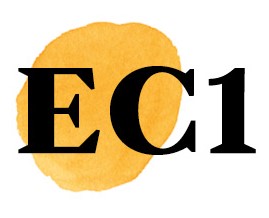Private rents in Islington have become less affordable over the last year, new figures show.
By Adam Care, Data Reporter

Private rents in Islington have become less affordable over the last year, new figures show.
The campaign group Generation Rent said renters across England and Wales are “facing the most backbreaking costs” and urged the Government to intervene.
Figures from the Office for National Statistics show private renters on a median wage in Islington could expect to spend 46% of their income on the area’s average-priced rented home in 2023-24.
This was higher than the 41% a year earlier, but lower than the 58% in 2015-16, when records began.
It was also higher than the average of 42% across London.
Mairi MacRae, director of campaigns and policy at Shelter, said: “Millions of people are forced to rely on an increasingly unaffordable private rental market, where costs have spiralled out of control.
“Across the country, private rents are swallowing up huge proportions of people’s incomes. Many are unable to save for the future, while others are forced to skip meals and cut back on essentials just to keep afloat.
“With little preventing landlords hiking the rent, families who can no longer keep up are being pushed into homelessness in grotty and unstable temporary accommodation.”
Across England, private renters could expect to spend 36% of their income on the average rent.
An area is considered “affordable” if a private-renting household would spend the equivalent of 30% or less of their gross income on rent. This means homes in Islington are considered unaffordable.
Francesca Albanese from the homelessness charity Crisis said renters are “overburdened with rental costs”.
She added: “What these statistics don’t show clearly is that the impact falls hardest on people with the lowest incomes.
“Research recently showed that just 2.7% of new private lets in England were affordable to people on housing benefit, made worse by the fact housing benefit is currently frozen.
“Households on the lowest incomes are having to spend increasingly large proportions of their incomes on rent, often foregoing other essentials – from food to gas and electricity – to make ends meet.
“These families are more vulnerable to financial shocks like eviction, and more vulnerable to being forced into homelessness.”
She urged the Government to unfreeze housing benefit in the Autumn Budget, and to “deliver on its promise to build thousands of new homes for social rent”.
Ben Twomey, chief executive of Generation Rent, which has campaigned to reform the rental system, said: “Renters are being crushed under the weight of high, unaffordable rents.
“For families up and down the country this means being unable to put money aside for the future, or facing a daily choice between putting food on the table or getting into debt.”
He called for metro mayors to be given “all the powers they need to slam the brakes on rising rents”.
A Ministry of Housing, Communities and Local Government spokesperson said: “We know the rental market needs to be made fairer and that’s why through our Renters’ Rights Bill we will empower tenants to challenge excessive rent hikes, end unfair bidding wars, and cap advance payments to one month’s rent.
“Key to reducing rents is also through boosting supply, which is why through our Plan for Change we will deliver 1.5 million homes, including the biggest increase in social and affordable housebuilding in a generation, backed by £39 billion investment.”









